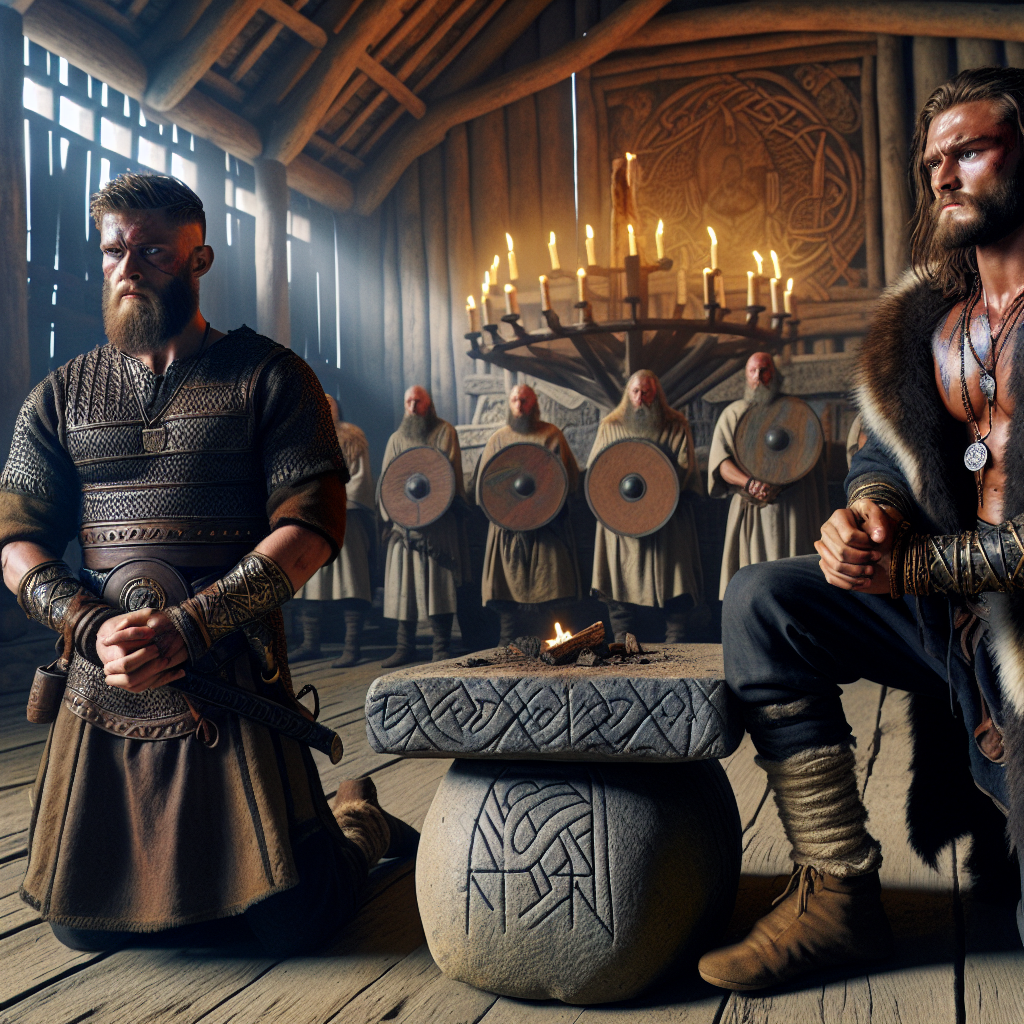The importance of sacrifices in the Nordic mentality
Leif Arnarson's misfortune

Brothers Leif and Ingolfr Arnarson discuss whether or not a sacrifice should be made to the Gods - AI-generated image
"Leif carried out numerous raids in Ireland, where he took a sword from a man in a dark underground place. From that moment on, he was called Hjorleif (Leif of the Sword, in Old Norse). He returned with ten slaves. During that winter, Ingolfr offered sacrifices to the gods to learn his fate, but Hjorleif chose not to do so. The omens directed Ingolfr to Iceland. The two brothers prepared their ships and set sail."
This is how Ari Thorgillsson described the journey of what would become the first permanent Viking colony in Iceland, established by the brothers Leif and Ingolfr Arnarson. The two Norwegians arrived on Icelandic shores in 874, dividing their men and possessions. Ingolfr went eastward, while Hjorleif continued west, eventually settling in the area known as Hjorleifshofdi (Hjorleif’s Fjord), where he spent the winter.
When spring and summer arrived, Leif decided to cultivate the land he had settled on but only had one ox available. He forced his Irish slaves to work the land. However, they rebelled, killing Leif and his men before escaping with his ship to a nearby fjord.
According to the Landnámabók, when Ingolfr learned of the events, he was deeply grieved. Reflecting on his brother's demise, he remarked: “It is a sad end for a brave man to die at the hands of slaves. But what can one expect from those unwilling to offer sacrifices?” Ingolfr later found the culprits and slaughtered them all.
Leif's story, along with his brother's words blaming him for his own death, serves as a stark reminder of the centrality of sacrifices in Norse culture. Known as Blót, these rituals aimed to strengthen the bond with the deity through offerings, often involving the killing of animals—typically goats, horses, or pigs—or even humans in cases of significant divine favor requests. By sacrificing the victim, performed by the *goði* (priest, in Old Norse), a connection with the god was forged to secure their blessing. Failing to do so, as in Leif's case, was believed to invite misfortune.
Donald F. Logan, Storie dei Vichinghi, Odoya, 2021
2025-08-05
Salvatore Ciccarello
